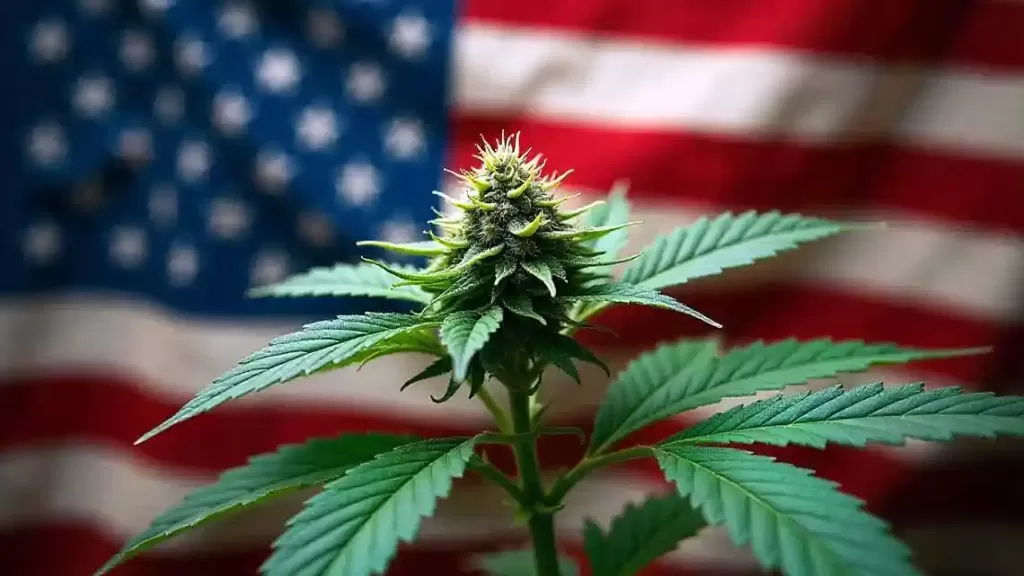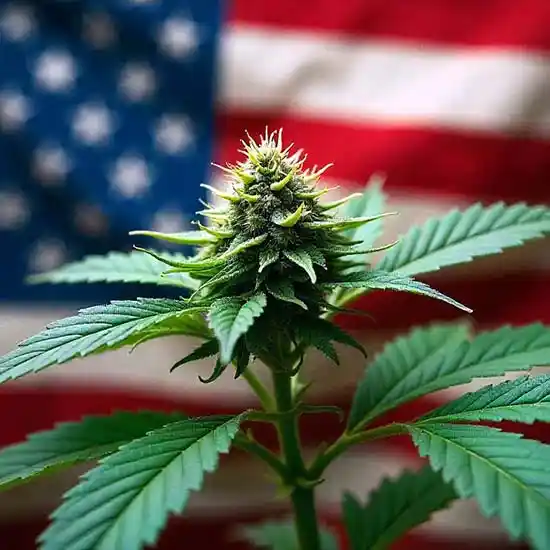With the 2024 presidential election approaching, the future of cannabis legalization is once again at the forefront of political discourse. The outcome of the election could drastically influence how cannabis is regulated at both the federal and state levels. Candidates have varying positions on cannabis legalization, which will affect legislation on topics like decriminalization, medical use, and full legalization. This blog will explore the key factors that could shape cannabis policy depending on who wins the presidency.
Candidate Positions: Kamala Harris and Donald Trump
Kamala Harris
Kamala Harris has evolved significantly in her stance on cannabis over the years. When she served as San Francisco’s District Attorney in 2010, Harris took a conservative approach and opposed Proposition 19, a ballot initiative aimed at legalizing cannabis for adult use in California (Marijuana Moment). However, her views have shifted considerably since then.
By 2019, Harris was co-sponsoring the Marijuana Opportunity Reinvestment and Expungement (MORE) Act, which sought to remove cannabis from the list of federally controlled substances, expunge past marijuana convictions, and invest in communities disproportionately impacted by the War on Drugs.
As Vice President, she has supported cannabis reform, particularly by advocating for the decriminalization of marijuana and pardoning individuals with low-level cannabis offenses. Harris’ support of cannabis legalization aligns with the broader Democratic agenda, which has increasingly embraced the idea of federal legalization (Marijuana Moment).
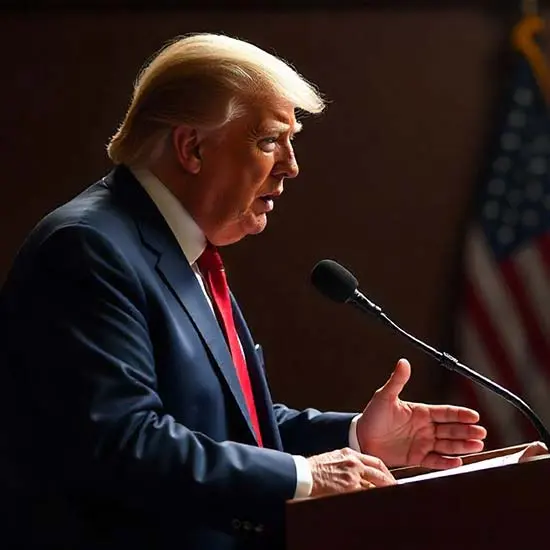
Donald Trump
Donald Trump, on the other hand, has had a more inconsistent stance on cannabis. During his presidency, Trump signed the 2018 Farm Bill, which legalized hemp and opened the door for the CBD industry to flourish.
However, when it came to marijuana, his administration took a more hands-off approach, deferring to state laws while his Attorney General, Jeff Sessions, actively opposed legalization.
Despite his personal ambivalence, some reports suggest that Trump is more open to supporting cannabis reform in states where the industry is booming, such as Florida(Marijuana Moment).
However, his base, particularly conservative voters, remains largely opposed to full legalization, so any reforms under another Trump administration might be incremental rather than sweeping.
Federal vs. State Laws: The Ongoing Conflict
One of the biggest issues surrounding cannabis in the U.S. is the discrepancy between federal and state laws. While 23 states have legalized marijuana for adult use and over 35 states have medical marijuana programs, it remains illegal at the federal level under the Controlled Substances Act (CSA). The result is a complicated legal landscape where businesses, consumers, and law enforcement operate under different rules depending on the jurisdiction.
If the next administration prioritizes cannabis reform, federal legalization could finally bridge this gap. A federally regulated cannabis market would reduce confusion, standardize safety and quality control measures, and potentially open up new economic opportunities across the country. On the other hand, maintaining the status quo under federal prohibition could perpetuate the current system where state-legal businesses remain vulnerable to federal intervention.
Federal Legalization and its Impact on States
Federal legalization would not necessarily override state laws but would create a uniform legal framework for cannabis. States that have already legalized cannabis would likely maintain their existing regulations, but they could be subject to additional federal oversight. For example, states might be required to follow federal guidelines for product testing, labeling, and advertising, which could affect the way cannabis is sold and marketed.
Conversely, states that have resisted legalization could still enforce prohibition within their borders. However, federal legalization would make it more difficult for these states to prevent the flow of legal cannabis across state lines, particularly in regions where neighboring states have embraced legalization.
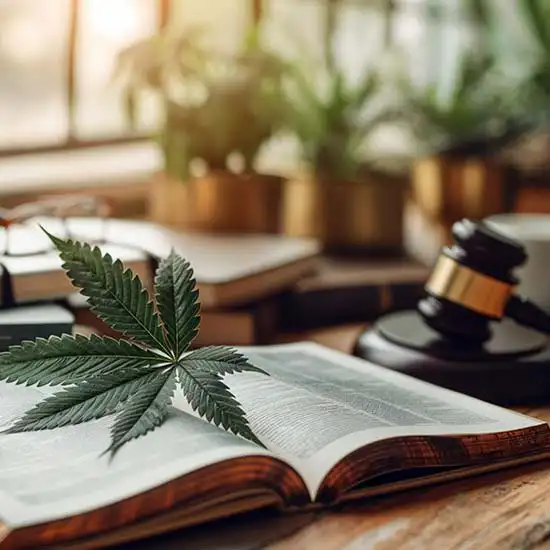
Key Legislation: The MORE Act and SAFE Banking Act
Several key pieces of cannabis-related legislation could gain momentum depending on the outcome of the election. Two of the most significant bills currently under consideration are the MORE Act and the SAFE Banking Act.
The MORE Act
The MORE Act, co-sponsored by Kamala Harris in 2019, seeks to decriminalize cannabis at the federal level, effectively legalizing it nationwide. The bill also includes provisions for expunging prior cannabis convictions and establishing funds to support communities disproportionately impacted by the War on Drugs (Marijuana Moment).
If passed, the MORE Act would represent a significant step toward rectifying the racial and social inequalities exacerbated by cannabis prohibition.

The SAFE Banking Act
The SAFE Banking Act, which has gained bipartisan support in Congress, aims to address the banking challenges faced by cannabis businesses. Because cannabis is still federally illegal, most banks refuse to provide services to cannabis companies, forcing them to operate as cash-only businesses. This creates security risks and makes it difficult for these companies to grow and scale. The SAFE Banking Act would allow financial institutions to work with cannabis businesses without fear of federal penalties (Marijuana Moment).
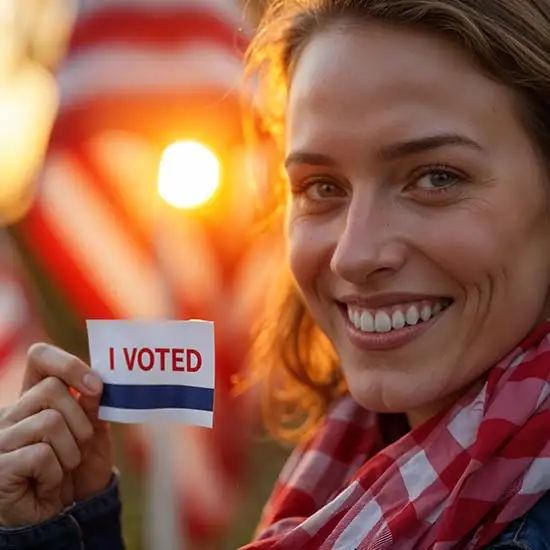
Public Opinion and Voter Demographics
Public opinion on cannabis legalization has shifted dramatically over the past few decades. According to recent polls, nearly 70% of Americans now support legalizing marijuana, compared to just 12% in the 1960s (Marijuana Moment). This change is largely driven by younger generations, who are more likely to view cannabis as a relatively harmless substance with medicinal benefits.
As cannabis continues to gain acceptance among the general public, it has also become a key issue for voters. In states where cannabis legalization measures are on the ballot, turnout among younger and more progressive voters tends to increase. This demographic shift could have a significant impact on the 2024 election, particularly in swing states where cannabis reform is a popular issue.
Cannabis and Young Voters
The millennial and Gen Z generations, in particular, are strong supporters of cannabis reform. Many young voters see cannabis legalization as a social justice issue, given the disproportionate impact of drug laws on communities of color.
In recent elections, cannabis legalization has been used as a tool to mobilize these voters, with some states even holding referendums on legalization alongside presidential elections (Marijuana Moment). If cannabis remains a prominent issue in the 2024 election, it could drive higher turnout among younger voters, particularly in states with contentious Senate or gubernatorial races. This could provide a boost to candidates who support legalization, as well as increase the likelihood of cannabis-friendly legislation passing at the federal level.
The Role of Big Business in Cannabis Reform
Another factor that could shape the future of cannabis in the U.S. is the growing influence of big business. As more states legalize cannabis, large corporations are entering the market, bringing with them significant financial resources and political clout. Companies like Altria, Constellation Brands, and even Coca-Cola have invested in the cannabis industry, betting that federal legalization is on the horizon (Marijuana Moment).
These corporate players have the potential to sway lawmakers in favor of legalization, particularly if they can demonstrate the economic benefits of a regulated cannabis market. However, their involvement also raises concerns about the corporatization of cannabis and the potential for small businesses to be squeezed out of the market.

The International Implications of U.S. Cannabis Policy
The U.S. is not the only country grappling with cannabis legalization. Several other nations, including Canada, Uruguay, and Mexico, have already legalized cannabis for adult use, while many others are considering similar reforms. The outcome of the 2024 presidential election could have ripple effects beyond U.S. borders, particularly if the next administration takes a more progressive stance on cannabis reform.
U.S. as a Global Leader in Cannabis Policy
If the U.S. were to legalize cannabis at the federal level, it could pave the way for other countries to follow suit. As one of the world’s largest and most influential economies, U.S. policy often sets the tone for global markets. Federal legalization would not only boost the U.S. cannabis industry but also encourage international investment and trade in cannabis products (Marijuana Moment). Conversely, if the U.S. continues to maintain federal prohibition, it could limit the growth of the global cannabis market and hinder international cooperation on issues like cannabis research and regulation.

U.S. Presidents that Have Supported Cannabis Legalization in the Past
While cannabis legalization has often been a contentious topic in U.S. politics, several past presidents have expressed varying degrees of support for reforming cannabis laws. Their positions have ranged from advocating for medical marijuana use to exploring federal decriminalization. Let’s take a look at some notable U.S. presidents who have played a role in shaping the national conversation on cannabis.
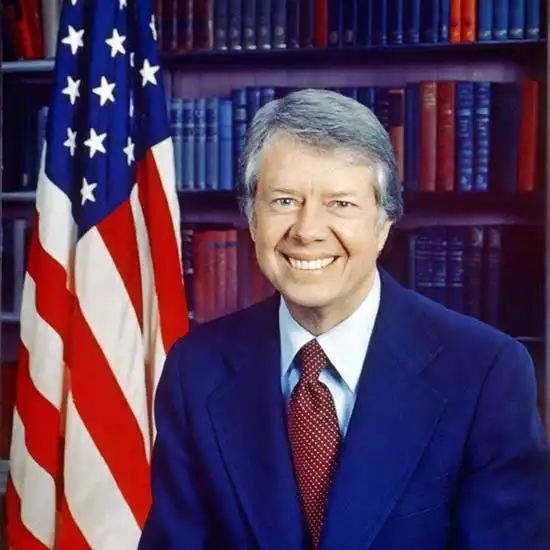
Jimmy Carter (1977-1981)
Jimmy Carter, who served as the 39th President of the United States, was one of the earliest presidential advocates for cannabis decriminalization.
During his presidency in 1977, Carter urged Congress to decriminalize marijuana, making possession of small amounts punishable by a fine rather than jail time. In a speech to Congress, Carter famously said:
“Penalties against drug use should not be more damaging to an individual than the use of the drug itself” (Marijuana Moment).
Although Carter’s push for decriminalization garnered attention and support from various civil rights groups, his efforts were overshadowed by the rise of the War on Drugs, spearheaded by subsequent administrations. Despite this, Carter remains notable as a president who openly discussed the harms of punitive cannabis laws.
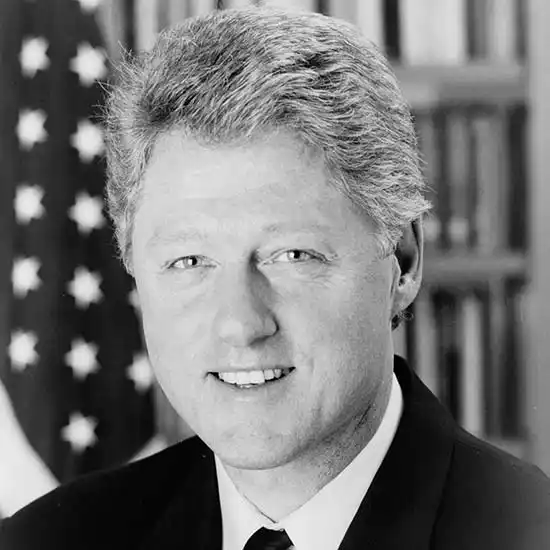
Bill Clinton (1993-2001)
During his campaign and early presidency, Bill Clinton took a relatively tough stance on drug use, including cannabis. However, he is perhaps best known for his infamous admission of having tried marijuana during his youth but claiming that he “did not inhale.”
Despite his personal history with the drug, Clinton’s administration expanded the War on Drugs and increased funding for anti-drug efforts.
Toward the end of his presidency, however, Clinton expressed more openness to the idea of medical marijuana. Several states, including California, passed medical cannabis laws during his administration.
In an interview after leaving office, Clinton admitted that he was in favor of allowing medical marijuana if it were shown to alleviate suffering. His views on cannabis seemed to evolve, although they were more progressive after he left the White House (Marijuana Moment).

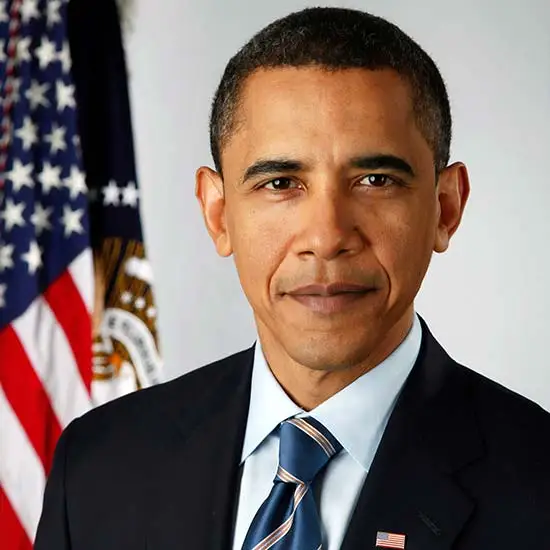
Barack Obama (2009-2017)
Barack Obama’s presidency marked a significant shift in how the federal government approached cannabis. Before becoming president, Obama admitted to using marijuana during his youth, even joking, “I inhaled frequently. That was the point” (Marijuana Moment). During his first term, Obama’s administration took a somewhat cautious approach to cannabis legalization. Although federal authorities occasionally cracked down on state-legal cannabis operations, Obama eventually allowed states more freedom to implement their own cannabis laws without federal interference. This shift became especially clear with the 2013 issuance of the “Cole Memo,” which advised federal prosecutors to prioritize other drug enforcement issues over prosecuting state-legal cannabis businesses (Marijuana Moment).
In his second term, Obama’s stance became more supportive of cannabis reform. In a 2014 interview with The New Yorker, Obama stated that he viewed marijuana as less harmful than alcohol and that the criminalization of cannabis disproportionately impacted minorities. Obama’s more lenient approach laid the groundwork for the rapid expansion of state-level legalization initiatives during and after his presidency.
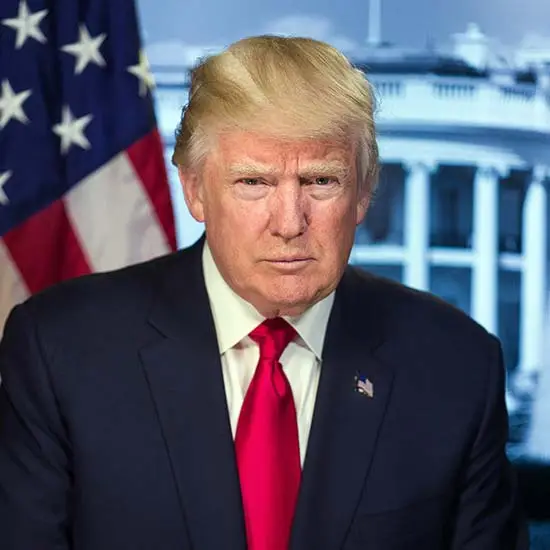
Donald Trump (2017-2021)
Donald Trump’s stance on cannabis was often ambiguous. During his campaign for president in 2016, Trump expressed support for medical marijuana and emphasized that cannabis regulation should be left to the states. His administration, however, sent mixed signals on cannabis policy.
While Trump himself avoided strong public stances, his Attorney General, Jeff Sessions, was a vocal opponent of cannabis legalization and even rescinded the Cole Memo, which had offered protections to state-legal cannabis industries (Marijuana Moment).
Despite these setbacks, Trump signed the 2018 Farm Bill, which legalized the cultivation and sale of hemp, effectively decriminalizing products derived from hemp, including CBD. While Trump’s personal views on full cannabis legalization remain unclear, his administration’s policies had both positive and negative impacts on cannabis reform. His signing of the Farm Bill was a major victory for the cannabis industry, particularly for companies focused on CBD.

Conclusion: The Stakes for Cannabis in the 2024 Election
The 2024 presidential election is poised to be a critical moment for the future of cannabis in the U.S. Depending on the election’s outcome, the country could see significant shifts in cannabis policy at the federal level, or it could continue to operate under a fragmented system of state-by-state legalization. Candidates like Kamala Harris, who have embraced cannabis reform, offer hope for sweeping changes, including the potential for federal legalization and the passage of key legislation like the MORE Act and SAFE Banking Act.
At the same time, public opinion is increasingly in favor of legalization, with younger voters and cannabis advocates pushing for reform. The future of cannabis will depend not only on the president but also on the evolving legal landscape and the influence of public sentiment. As cannabis continues to play a major role in American politics, the 2024 election could be a turning point for the industry and for cannabis users across the country.
Whether federal legalization becomes a reality or the state-based system remains in place, one thing is certain: cannabis will remain at the forefront of political debate for years to come.
The information provided is not a substitute for professional medical advice, diagnosis, or treatment. Consult with a qualified healthcare professional for personalized advice based on your medical condition.

